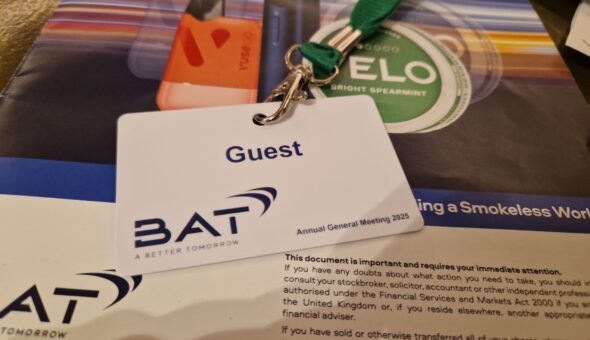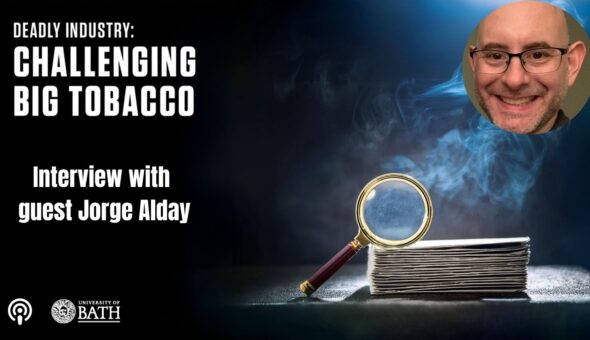You will probably have heard of the Climate Change COP, an annual meeting of the signatories to the parties of the United Nations Framework Convention on Climate Change. But have you heard of the Tobacco Control COP?
What is the Tobacco Control COP?
The Conference of the Parties (COP) is a biennial meeting of the Parties to the World Health Organization Framework Convention on Tobacco Control (WHO FCTC). The WHO FCTC was developed to protect public health from the tobacco epidemic in a cooperative and global manner.
The conference will take place between 5 - 10 February. It is an opportunity for delegations from around the globe to come together to discuss tobacco control and influence international policy. Of course some of the decisions which will be made could have a negative impact on the profits of the tobacco industry, so they are likely to attempt to undermine the proceedings.
And MOP?
After COP finishes, the Meeting of Parties (MOP) to the Protocol to Eliminate Illicit Trade in Tobacco Products will begin. Illicit tobacco trade undermines tobacco control as it increases access to tobacco products, often making them available at lower costs than if purchased legally.
At the MOP, Parties to the Protocol will be working together on strategies to counter illicit trade in tobacco products, including strengthening tobacco tracking and tracing efforts and discussing other measures to secure the supply chain. This will be the third MOP event, the other two having been held in 2021 and 2018.
Why is this one particularly important?
The decisions that are made at COP are very important as they shape the ways in which the treaty is implemented.
There have been nine COP events previously. The most recent event was held virtually, which means that February’s event will be the first in-person meeting since 2018. This makes it particularly important as, due to the difficulties of meeting virtually, a lot of important discussions were postponed from the latest meeting.
Some of the key topics that will be discussed at this year’s event are:
- Review of performance progress report to understand what the Parties are doing to protect public health;
- Implementation review mechanism to ensure progress is kept under regular check and Parties have assistance to comply with their obligations;
- Depiction of tobacco in entertainment media;
- Novel and emerging tobacco products;
- Proposed budget for implementation of treaty from 2024-2025; and
- Strengthening synergies between the COP and the World Health Assembly (the decision-making body of WHO).
It is also the first COP where Malawi – where tobacco growing continues to play a big part in the country’s economy, will attend as a party, following its ratification of the convention in August 2023.
How does the tobacco industry get involved?
Article 5.3 of the WHO FCTC states that: "In setting and implementing their public health policies with respect to tobacco control, Parties shall act to protect these policies from commercial and other vested interests of the tobacco industry in accordance with national law." In other words, a key aim of the Treaty is to stop the tobacco industry from being able to influence public health policy.
We know that the tobacco industry will attempt to infiltrate and influence the proceedings at COP. The Tobacco Control Research Group (TCRG) have monitored how the industry has interfered in previous COP/MOP events, including by arguing that they should be involved in decision making as a key stakeholder, proposing that groups affiliated with the industry become official observers, and putting pressure on representatives from low- and middle-income countries (LMICs) to advocate on their behalf.
How is COP/MOP protected from industry involvement?
Part of the WHO FCTC guidelines for implementation are to ensure the “active participation of civil society” to help protect public health from being harmed by the vested interests of tobacco industry. To help achieve this aim, international and regional nongovernmental organisations whose “aims and activities are in conformity with the spirit, purpose and principles of the Convention” may apply to become official observers of the COP.
TCRG is one of only two UK organisations to be accredited as official observers to the COP/MOP. Alongside Cancer Research UK, TCRG will be attending the conference to observe the proceedings.
Away from COP, the work TCRG does to regularly monitor and provide info on the tobacco industry will be very valuable to attendees of the event to inform them on the tactics used by the tobacco industry to undermine efforts to protect public health.
What happens at COP directly affects tobacco control policy here in the UK and you will eventually see the results of steps taken at this conference in your local corner shop. It is important that these discussions can take place without being undermined by the tobacco industry.
Where to get more information?
We have more information on COP/MOP available on tobaccotactics.org, TCRG’s knowledge exchange platform.
We will also be sharing updates of what is happening at COP/MOP on our social channels at X and Linkedin.



